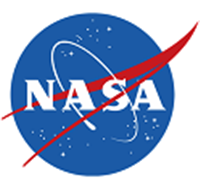Hacking NASA: One small step for man, one giant leap for hackers?


Looking at this bug, the tech details aren't overwhelming, I think I'm mostly excited about it due to the high profile of hacking NASA libs. One can hardly fault NASA though, I mean, our government can't even get them enough money to do some real space exploration, it's hard to fault them for missing some security issues.
I'll leave the technical details to CORE's advisory, as they have a great description:
The libraries for the scientific data file format, Common Data Format (CDF) http://cdf.gsfc.nasa.gov/ version 3.2 and earlier, have the potential for a buffer overflow vulnerability when reading specially-crafted (invalid) CDF files. If successful, this could trigger execution of arbitrary code within the context of the CDF-reading program that could be exploited to compromise a system, or otherwise crash the program. While it's unlikely that you would open CDFs from untrusted sources, we recommend everyone upgrade to the latest CDF libraries on their systems, including the IDL and Matlab plugins. Most worrisome is any service that enables the general public to submit CDF files for processing.
The vulnerability is in the CDF library routines not properly checking the length tags on a CDF file before copying data to a stack buffer. Exploitation requires the user to explicitly open a specially-crafted file. CDF users should not open files from untrusted third parties until the patch is applied (and continue then to exercise normal caution for files from untrusted third parties).
CDF 3.2.1 addresses this vulnerability and introduces further usability fixes http://cdf.gsfc.nasa.gov/. Updates for Perl, IDL, Matlab and Java WebStart are also available. Java WebStart applications that refer to http://sscweb.gsfc.nasa.gov/skteditor/cdf/cdf-latest.jnlp, will automatically be updated to include this fix the next time the application is started while connected to the Internet.
...Exploitation of the CDF overflow problem requires the user to explicitly open a specially crafted file. The user should refrain from opening files from untrusted third parties or accessing untrusted Web sites until the patch is applied.
Wow, what can I say, great work by the CORE team, on an interesting target.
-Nate